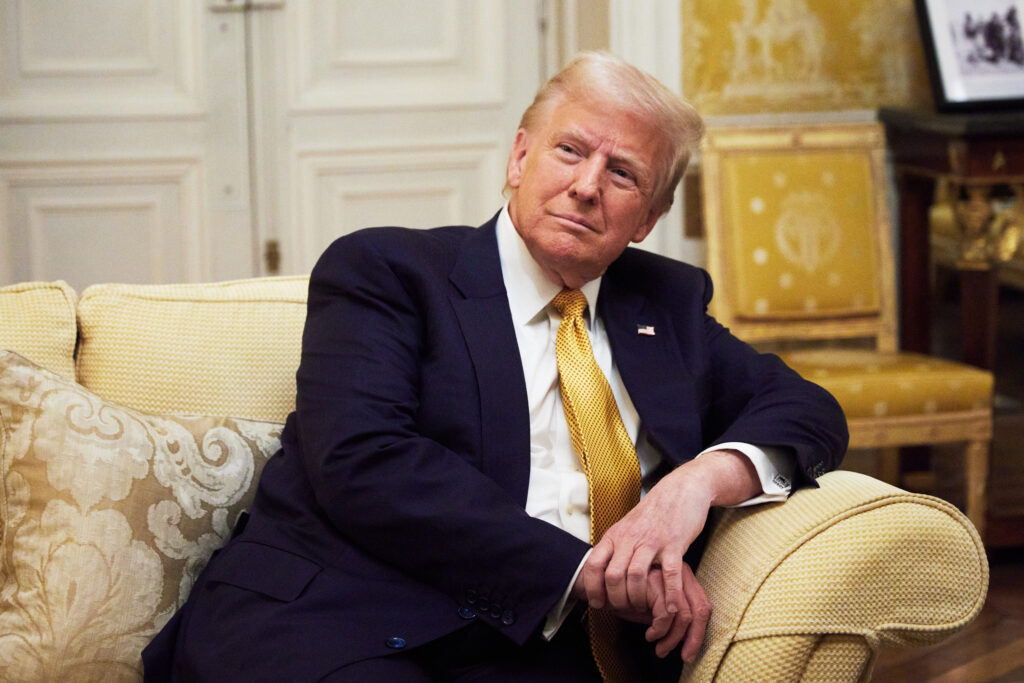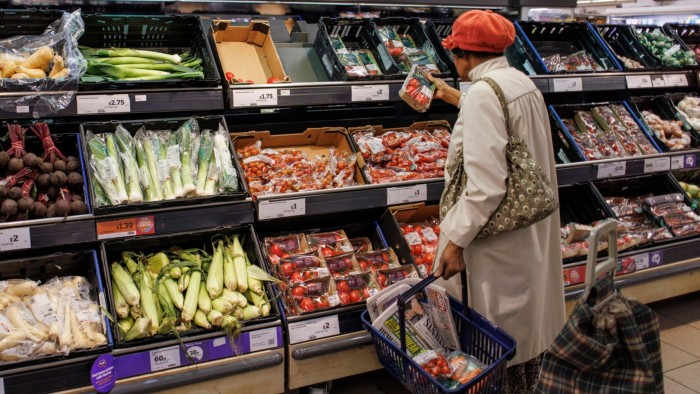
<span class="cap" id="short-cap-description">President-Elect Donald Trump is seen on December 7 in Paris. A majority of Americans are bracing themselves for Trump's proposed tariffs, according to a poll that was published on Monday.</span> <span class="cap" id="full-cap-description" style="display: none;">President-Elect Donald Trump is seen on December 7 in Paris. A majority of Americans are bracing themselves for Trump's proposed tariffs, according to a poll that was published on Monday.</span> <span class="credit ar23-credit">Oleg Nikishin/Getty Images</span>
- Putin Says Inflation ‘Worrying’ But Russian Economy ‘Stable’
- Dow soars as investors welcome surprising inflation data
- Putin admits Russian inflation is ‘alarming’ and economy ‘overheating’
- What shape is Scotland’s economy in after 2024?
- Trump trade aide Peter Navarro denies tariff plans will spur inflation
What’s New
A majority of Americans are bracing themselves for President-elect Donald Trump‘s proposed tariffs, according to a poll that was published on Monday.
Bạn đang xem: Donald Trump Gets Bad News About His Tariff Plan From Americans in New Poll
In a WalletHub Fed Rate survey of 200 Americans this month, 74 percent of Americans said Trump’s possible tariffs would likely lead to more inflation down the line as it remains above the Federal Reserve’s 2 percent target.
Newsweek has reached out to Trump’s transition team via email for comment on Monday afternoon.
Why It Matters
Trump centered his presidential campaign on his strong economic policies, often calling into question the Joe Biden’s administration’s impact on the U.S. economy and high inflation.
However, Trump’s policies, especially his plans to implement tariffs on different countries, like China, Canada and Mexico, could cause prices to rise across a variety of sectors.
Trump said he would impose tough new tariffs on Canada and Mexico unless both countries do more to tackle the flow of undocumented migrants and drugs over their borders with the United States.
Xem thêm : investors await Fed’s preferred inflation gauge
The president-elect also campaigned on a promise to introduce heavy tariffs against China until it cracks down on the production of materials used to make fentanyl as well as a possible universal tariff on all imports to the U.S.
Oleg Nikishin/Getty Images
What To Know
Already, Americans say they are feeling the pain from inflation on their wallet, with nearly nine in 10 saying inflation is still an issue, according to the WalletHub’s report. Meanwhile, more than 3 in 4 people currently think inflation is a bigger issue than the job market.
Trump focused on tariffs during his campaign as a way to protect American jobs and punish countries like China, which often produce goods with cheap labor and bad working conditions.
The president-elect’s tariff plans generally concern a 60 percent extra cost on Chinese goods and up to 20 percent on imports from other countries.
The National Retail Federation (NRF) predicted that the tariffs could cost the U.S. between $46 billion and $78 billion per year in lost purchasing power. An estimate from the Peterson Institute for International Economics (PIIE) predicted that middle-income families could face annual losses of at least $2,500.
What People Are Saying
Kevin Thompson, a finance expert and the founder and CEO of 9i Capital Group, told Newsweek: “This is basic economics. When companies face higher prices for imports, they pass those costs onto consumers in the form of increased prices, which contributes to inflation on goods.”
Thompson said the high number of Americans who think Trump’s policies could actually lead to worse inflation and economic realities is not surprising even amid Trump’s strong Republican voting base.
Xem thêm : The Federal Reserve cut interest rates again
“It is not surprising when tribalism takes hold, emotions often override logic, particularly when it comes to economics. Many people voted for change—what felt good—without fully considering how that change would play out in reality,” he said.
Alex Beene, a financial literacy instructor for the University of Tennessee at Martin, told Newsweek: “The primary fear—and rightfully so—is any tariff added to particular countries and industries would result in those costs being passed on to the consumer.”
He added: “So far, Trump has simply warned of tariffs being imposed on countries that didn’t make adjustments based on his demands, but if they’re enacted, it certainly could impact the wallets of millions of Americans. I think the hope right now is cooler heads will prevail, and the proposed tariffs will remain just that, a proposal.”
Michael Ryan, a finance expert and the founder of michaelryanmoney.com, previously told Newsweek: “These tariffs would certainly mean higher prices for us American consumers. Retailers/importers will pass these increased costs onto shoppers, driving up the price of everyday items like toasters and washing machines.”
What Happens Next
During his first presidency, Trump enacted tariffs on solar panels and washing machines in 2018, at a range of 30 to 50 percent. He also added a 25 percent tariff on steel and a 10 percent tariff on aluminum for many countries. It affected imports from China, Europe, Canada and Mexico.
While Trump has continued to be vocal in his plans to enforce the new tariffs once he returns to office in January, not all analysts expect the tariffs would get approved that easily.
“Approval will depend on whether a bipartisan consensus can be reached in the House of Representatives,” Thompson told Newsweek. “During his administration, many of Trump’s campaign promises were blocked, even when his party controlled both chambers of Congress. Whether this plan succeeds will depend on the political climate and the priorities of Congress.”
Nguồn: https://estateplanning.baby
Danh mục: News




